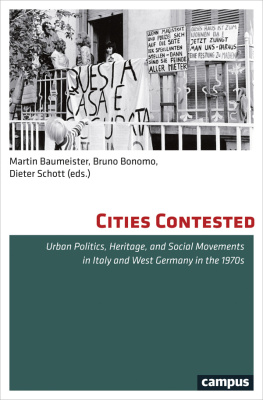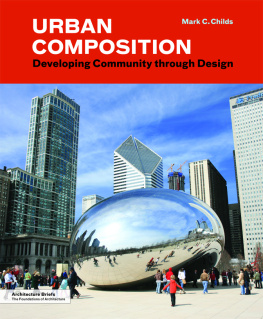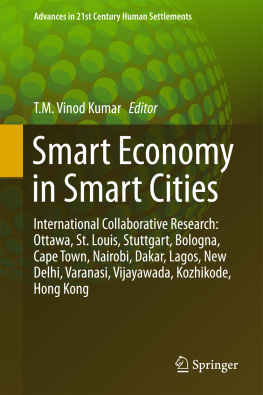First published in 1986 by Curzon Press Ltd.
This edition first published in 2018
by Routledge
2 Park Square, Milton Park, Abingdon, Oxon OX14 4RN
and by Routledge
711 Third Avenue, New York, NY 10017
Routledge is an imprint of the Taylor & Francis Group, an informa business
1986, Sharif Uddin Ahmed
All rights reserved. No part of this book may be reprinted or reproduced or utilised in any form or by any electronic, mechanical, or other means, now known or hereafter invented, including photocopying and recording, or in any information storage or retrieval system, without permission in writing from the publishers.
Trademark notice: Product or corporate names may be trademarks or registered trademarks, and are used only for identification and explanation without intent to infringe.
British Library Cataloguing in Publication Data
A catalogue record for this book is available from the British Library
ISBN: 978-0-8153-5316-4 (Set)
ISBN: 978-1-351-13718-8 (Set) (ebk)
ISBN: 978-0-8153-9407-5 (Volume 1) (hbk)
ISBN: 978-1-351-18675-9 (Volume 1) (ebk)
Publishers Note
The publisher has gone to great lengths to ensure the quality of this reprint but points out that some imperfections in the original copies may be apparent.
Disclaimer
The publisher has made every effort to trace copyright holders and would welcome correspondence from those they have been unable to trace.
PREFACE
Of the forty-nine postgraduate students I have supervised, two future vice chancellors among them, Professor Sharif uddin Ahmed is one of the most interesting and able.
His intellectual abilities were early demonstrated when he stood first in First Class in MA History at Dhaka University. That achievement secured him a major award taken at Balliol College, Oxford, where in 1972 he did a B.Litt. by thesis on The Peasants of Bengal under John Gallagher and C.C. Davies with whose commendations he came to School of Oriental and African Studies SOAS- University of London. There he found a conference on The City in South Asia in preparation. Professor Ahmed attended it, contributed to it and made it the subject of his Ph.D. thesis.
This was a courageous move, for South Asian cities had not often been studied as subjects in themselves, other than by writers of tourist guides. Few competent secondary studies were available and no specialist journals. Only one full blown study on any major city of South Asia was carried out till that date was on the City of Ahmedabad and that was done by a geographer Kenneth L. Gillion.
The thesis thus had to be written from original records both of the provincial and local government, widely scattered across many departments and continents, rarely coordinated and subject to weeding and neglect. Happily one of Professor Ahmeds great strengths was his decisiveness in setting out lines of enquiry and their boundaries. This was matched by clearly marshalled arguments, set out in concise effective English.
The thesis, analysing changes in the life of Dhaka from 1840 to 1885 was warmly received by his examiners, Dr. P.J. Marshall and Dr. C.A. Bayly whose enthusiasm encouraged SOAS to publish it as the fourth volume in their London Studies in South Asia series. It has remained the standard work in the field to this day.
Since breaking new ground with his thesis Professor Ahmed has pursued his study of Dhaka city, exploring the responses to western ideas on education, medicine and civic organization and with several chambers of commerce the commercial history of his country.
After his return from the UK and joining the Dhaka University as Assistant Professor he became more involved in research works particularly with the Asiatic Society, the leading intellectual, academic and research body of Bangladesh. His first venture with the Asiatic Society was to make an effort to turn Urban History a more multi-disciplinary field. He thus organised the scholars from different disciplines from all over the world to make a multidisciplinary study of the capital city of Dhaka already in the process of becoming a mega city to present its past, existing state and its future.
With the financial assistance from the Ford Foundation he was able, under the auspices of the Asiatic Society, to hold an International Seminar on Dhaka with scholars from around the globe and published an anthology with the contributions of several leading scholars under the title Dhaka Past Present Future in 1990. This anthology became instantly a classic work and has so far gone several editions consulted by scholars all over the world who are interested in urban history especially of Dhaka.
However, Professor Ahmed soon realised that in order to understand the faster growth of urban centers in South Asia it is desirable that rural and regional history should be studied anew. Thus soon with the collaboration of the Bangladesh History Association of which he became the General Secretary and later its President, and with the assistance of local Sponsors and Norwegian Government Development Agency, he published two outstanding regional and local history of Bangladesh on Dinajpur and Sylhet, with the collaboration and help from scholars all over the world in the 1990s. The latter work Sylhet became instantly famous particularly in the United Kingdom where virtually all the migrants from Bangladesh are from Sylhet. The book is not only read and studied by the migrant Sylhetis and their descendants but by the British public and most importantly by the honourable members of the British Parliament in connection with issues of migrant communities of the United Kingdom. The tradition which Professor Ahmed thus had set for local and regional history study is still being followed by the Bangladesh History Association and other bodies.
Behind these urban and local history studies stand a third major achievement, the planning and organising of the National Library and the National Archives of Bangladesh of which he was the Director for ten years from 1997 to 2007. (The Government of Pakistan in 1962 created a National Library in Karachi leaving Bangladesh with no more than a Books and Newspaper Collection Branch .Likewise the National Archives of Pakistan was established in Karachi in1951 under the Directorate of Archives and Libraries, which had no branch whatsoever in East Pakistan till the National Archives was established in independent Bangladesh in 1972) )






